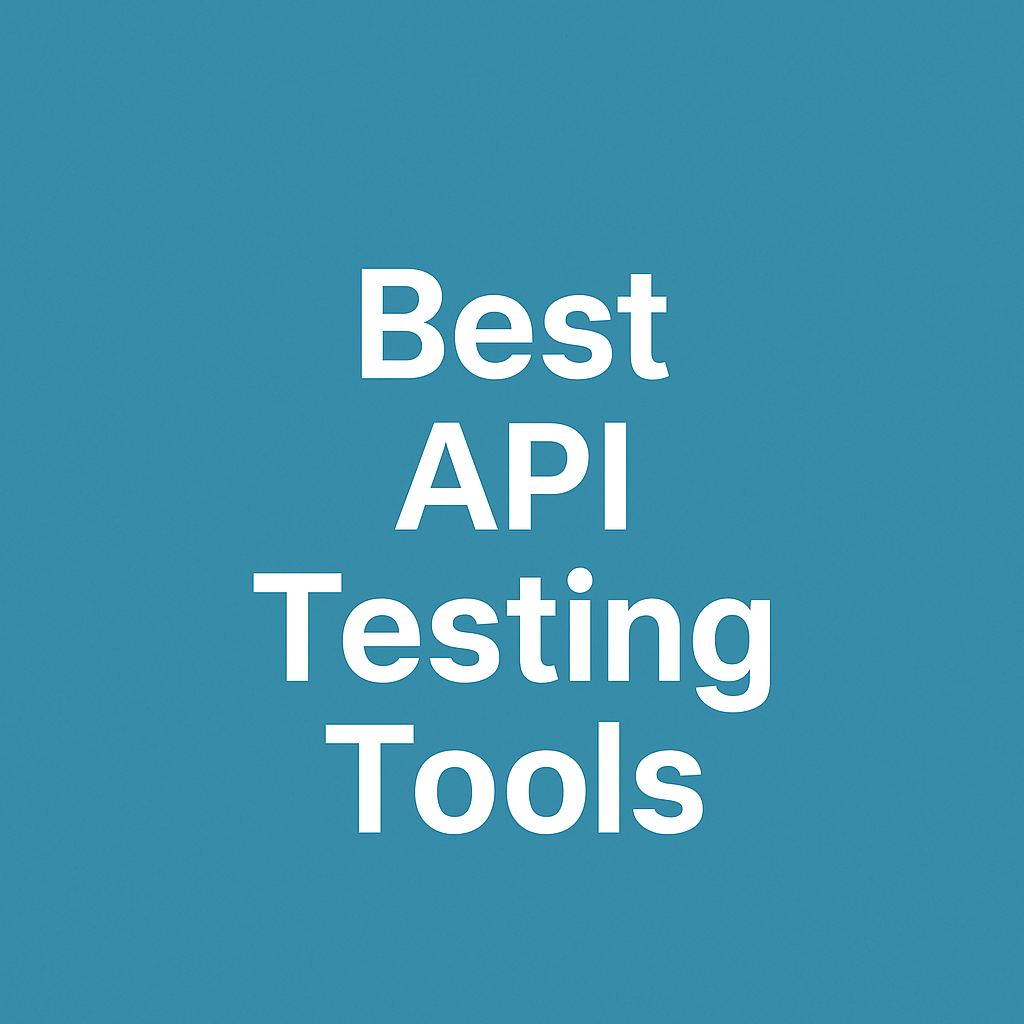Best API Testing Tools
💡 “Good APIs are invisible, but bad ones are unforgettable.”
In today’s software-driven world, over 90% of developers rely on APIs to integrate applications and services seamlessly. According to MarketsandMarkets, the global API testing market is expected to grow from $1.2 billion in 2020 to $4.1 billion by 2027, which is going to be driven by cloud adoption and microservices.
Yet, API testing comes with its own pain points. Some common issues that software testers encounter are:
- Hidden bugs in backend services that UI testing alone cannot detect.
- Complex dependencies between APIs make debugging challenging.
- Frequent API changes that break existing tests.
- Security risks when authentication and authorization aren’t properly validated.
This is where API testing tools become indispensable, helping QA teams ensure the reliability, scalability, and security of digital products.
What is API Testing?
API testing is a type of software testing that validates application programming interfaces (APIs) directly, rather than testing through the user interface. It checks whether APIs meet expectations for functionality, performance, security, and reliability.
Examples of API Testing:
- Sending a POST request to create a new user and verifying the response code (201 Created).
- Testing a payment gateway API for secure token validation.
- Measuring response times of a weather API under heavy traffic.
- Verifying authentication APIs to ensure only valid tokens provide access.
Importance of API Testing
Here’s why API testing is a cornerstone of modern application quality:
- Early Bug Detection – Issues in business logic and data exchange are caught before UI testing.
- Improved Test Coverage – Validates backend layers often missed by functional/UI tests.
- Faster Releases – Automates repetitive checks, speeding up CI/CD pipelines.
- Scalability & Performance – Ensures APIs respond quickly even under load.
- Security Assurance – Validates authentication, authorization, and data encryption.
- Cost Reduction – Catching API defects early saves thousands in later-stage bug fixes.

Best API Testing Tools
Below are the top API testing tools, rated on features, ease of use, and enterprise adoption.
1. DevAssure
First on the list is "DevAssure". DevAssure is an end-to-end testing platform that helps software testers perform Web, API, Accessibility, Visual Regression, and Mobile App Testing. Furthermore, users can make use of DevAssure’s AI engine to generate test cases from PRDs, Figma mock-ups, Image screenshots, and Swagger docs with just a few clicks.
A complete No-code interface enables even non-technical users to seamlessly perform all types of testing.
⭐ Rating: 5/5
Key Features of DevAssure
-
No-Code API Testing: Even non-technical testers can validate complex APIs without coding.
-
Unified Testing Flow: API testing steps can be interleaved with Web testing, giving true end-to-end coverage.
-
Omnichannel Testing: Perform Web, API, Mobile App (iOS, Android, Flutter), Accessibility (WCAG), and Visual Regression Testing in one unified platform.
-
AI-Powered Automation (Yaan AI): Generate test cases directly from PRDs, Figma, or Swagger Docs.
-
Self-Healing Locators: Reduce maintenance by auto-fixing broken tests.
-
CI/CD Integrations: Works seamlessly with Jenkins, GitHub Actions, and more.
✅ Best suited for enterprises looking for a single no-code platform to unify QA across channels.
🚀 See how DevAssure accelerates test automation, improves coverage, and reduces QA effort.
Ready to transform your testing process?
2. Postman
Second on the list is Postman, one of the most popular and widely adopted API testing tools in the world. Postman has now evolved into a full-fledged collaboration platform for API development, testing, and documentation.
Postman makes it easy for developers and QA teams to send API requests, analyze responses, and automate complex workflows. It comes with a user-friendly interface, pre-configured code snippets, and robust support for multiple HTTP methods (GET, POST, PUT, DELETE, etc.), which significantly reduces the learning curve even for beginners.
Key Features of Postman
-
Ease of Use: Provides an intuitive interface and ready-made snippets for quick API requests and responses.
-
Collaboration Ready: Enables teams to share collections, environments, and test scripts, making it great for distributed teams.
-
Comprehensive Testing: Supports functional testing, integration testing, regression checks, and monitoring of APIs.
-
Automation Support: Works seamlessly with Newman (its command-line tool) to integrate automated tests into CI/CD pipelines.
-
Rich Documentation: Automatically generates API documentation, which improves transparency across dev and QA teams.
3. TestSigma
Next on the list is TestSigma, a modern cloud-based test automation platform designed to simplify testing for Web, Mobile, and API applications.
One of its biggest advantages is its cloud-first architecture, which enables on-demand execution of tests across different environments without the hassle of infrastructure management. TestSigma also integrates well with popular CI/CD tools, making it suitable for agile teams who want to speed up their release cycles.
Key Features of TestSigma
-
Cloud-Based Platform: Being fully cloud-hosted, it eliminates infrastructure maintenance and allows instant scalability.
-
Natural Language Test Creation: Write tests in simple English, making automation accessible to QA teams with limited coding expertise.
-
Omnichannel Support: Provides automation for Web, Mobile, and API testing.
-
Integrations: Compatible with CI/CD tools like Jenkins, GitLab, and GitHub Actions, enabling smooth DevOps pipelines.
-
Collaboration Features: Teams can share test cases, manage test data, and track results on a centralized dashboard.
4. BrowserStack
BrowserStack is a well-established name in the software testing world, primarily recognized for its cross-browser and cross-device testing capabilities. It allows QA teams to run tests on a wide range of real devices, browsers, and operating systems without the need to maintain physical test labs. This makes it especially valuable for front-end validation and UI compatibility testing.
Key Features of BrowserStack
-
Cross-Browser Testing Leader: Provides access to thousands of real browsers and devices for compatibility checks.
-
API Testing Expansion: Recently added features for basic API validation, making it a more complete platform.
-
Great for UI Validation: Excellent at detecting UI/UX issues across devices, screen resolutions, and operating systems.
-
CI/CD Integration: Works with tools like Jenkins, GitHub Actions, and GitLab for automated execution.
5. Katalon Studio
Katalon Studio is a popular automation platform that provides an all-in-one solution for Web, Mobile, Desktop, and API testing.
Katalon also supports scripting with Groovy/Java for advanced automation scenarios, making it flexible for both beginners and experienced testers. It integrates with common CI/CD pipelines and offers built-in analytics dashboards for tracking execution results.
Key Features of Katalon Studio
-
Record-and-Playback: Simplifies initial test case creation without coding.
-
Versatile Platform: Supports API, Web, Mobile, and Desktop testing in one tool.
-
Scalable for Teams: Well-suited for small to mid-size QA teams starting with automation.
-
CI/CD Support: Integrates with Jenkins, Git, and other DevOps tools.
How DevAssure Sets Itself Apart from Others
While there are several tools for strong and dedicated API testing, DevAssure goes beyond API alone by offering:
-
True Omnichannel Testing – Unify Web, API, Accessibility, Visual Regression, Mobile App Testing in one no-code platform.
-
AI-Driven Test Case Generation – Automatically create test flows from Swagger, Figma, or PRDs.
-
Enterprise-Ready Security – On-prem deployment with SOC-2 compliance.
-
Agentic Test Orchestration (Yaan AI) – Executes complex multi-layered test flows intelligently.
This makes DevAssure the only platform that combines no-code simplicity with enterprise-grade AI testing orchestration.
Conclusion
API testing is no longer optional — it’s the backbone of modern application quality assurance. From ensuring faster releases to protecting against security breaches, choosing the right API testing tool is critical.
While Postman, TestSigma, and Katalon are excellent standalone tools, DevAssure leads the pack with its no-code, AI-powered, omnichannel testing capabilities — making it the best choice for enterprises looking to future-proof their QA strategy.
🚀 See how DevAssure accelerates test automation, improves coverage, and reduces QA effort.
Ready to transform your testing process?
